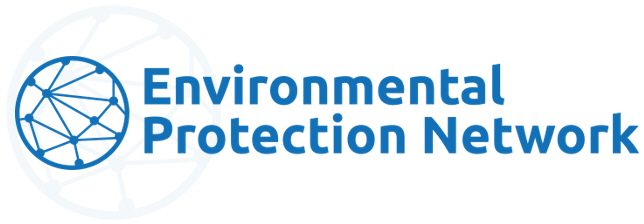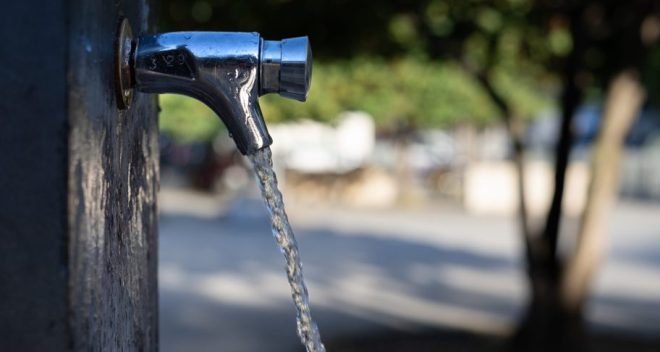FOR IMMEDIATE RELEASE
May 25, 2022
CONTACT:
Mollie Michel, Deputy Director, 718-536-6336 and mollie.michel@environmentalprotectionnetwork.org
Environmental Groups Across the Country Team Up to Advocate for
Equity in Lead Service Line Replacement
For Immediate Release: Through the historic bipartisan infrastructure bill, the U.S. Environmental Protection Agency (EPA) will be distributing $15 billion over five years to states to replace lead service lines to protect Americans from the harms of lead exposure in drinking water. Should states choose to follow EPA’s guidance to prioritize disadvantaged communities in disbursement of this funding, this could be a historic opportunity for state leaders to support the most vulnerable Americans and ensure equity and justice.
Yesterday afternoon, the Environmental Protection Network, Anthropocene Alliance, Flint Rising, Black Millennials for Flint, Northeast Ohio Black Health Coalition, NRDC (Natural Resources Defense Council), and City of Newark Department of Water & Sewer Utilities hosted a virtual round table discussion about the harms of lead contamination in drinking water and how to advocate for equity in lead service line replacement. The discussion was moderated by LaTricea Adams, President and Co-Founder of Black Millennials for Flint and panelists discussed the regulatory landscape of lead service line replacement, community success stories and challenges, and where we go from here.
A recording of the webinar can be found here.
“In its Draft Strategy to Reduce Lead Exposures and Disparities in the U.S., EPA has committed to identifying communities where lead exposures and blood lead levels are expected to be the highest; determining the dominant sources and cumulative exposure pathways; and focusing agency actions on reducing risks from paint, dust, soil, drinking water, and air,” said Dr. Elizabeth Southerland, Environmental Protection Network member and former director of science and technology in EPA’s Office of Water. “If states agree to join EPA in focusing on highly exposed communities, this Strategy could be another game changer.”
“Lead poisoning has been a public health crisis for decades; however, the solution to this critical issue is known, but still remains unsolved, said LaTricea D. Adams, Founder, CEO, and President of Black Millennials for Flint. “Time is up to not just address but to remediate all lead paint in housing and replace every single lead service line—both on the residential side and local utility side—in our country regardless of race or socioeconomic status. The call to action for a #LeadFreeUSA is loud and can longer go unheard.”
“The ongoing, 8 year-long Flint Water Crisis proves just how damning cutting corners—or ignoring the infrastructure and the community it serves altogether—can be when implementing changes to our drinking water system,” said Melissa Mays, Flint resident and Operations Manager for Flint Rising. “We must prioritize public health as we move to replace lead service lines and update our drinking water infrastructure so each drop coming out of the tap is truly safe for everyone.”
“We can’t take safe drinking water for granted. A lot of our water infrastructure is old and falling apart. Up to 12 million lead pipes supply water to homes and threaten the health of tens of millions of people, especially kids and low-income people,” said Erik D. Olson, senior strategic director for health and food at NRDC (Natural Resources Defense Council). “We have to make sure the historic investment of $30 billion for drinking water infrastructure is used efficiently and equitably, and goes to the disadvantaged communities that need it most.”
“Lead in the urban community is public enemy number one,” said Yvonka Hall, Executive Director of the Northeast Ohio Black Health Coalition. “A disproportionate number of African Americans are impacted by serious health issues as a result of lead poisoning. Though vulnerable urban community members are concerned about lead in water, across the country disadvantaged urban communities are always left behind when it comes to the allocation of funds to address this public health crisis.”
“The new bi-partisan infrastructure bill will be the most significant investment in the nation’s necessary functions I’ve seen in my lifetime,” said Kareem Adeem, Director of the Newark (NJ) Water and Sewer Utility, which replaced all 23,000 lead service lines in the city in less than three years. “It can also be an investment in human capital. About 70 percent of $200 million we spent on the project stayed in the city, through hiring local contractors and workers, and helping minority-owned businesses find opportunities for project support, in everything from engineering inspections to printing door hangers to inform our residents. The money fixed a critical environmental problem but also bolstered our economy.”
###
About the Environmental Protection Network: Founded in 2017, the Environmental Protection Network (EPN) harnesses the expertise of more than 550 former EPA career staff and confirmation-level appointees from Democratic and Republican administrations to provide the unique perspective of former regulators with decades of historical knowledge and subject matter expertise.
About Flint Rising: Flint Rising, a project of The Advocacy Fund, is a coalition of community organizations and allies working to ensure that directly impacted people are building the organizing infrastructure and leadership necessary for this long-haul fight for justice and creating the future that Flint families need and deserve.
About NRDC (Natural Resources Defense Council): NRDC (Natural Resources Defense Council) is an international nonprofit environmental organization with more than 3 million members and online activists. Since 1970, their lawyers, scientists, and other environmental specialists have worked to protect the world’s natural resources, public health, and the environment. NRDC has offices in New York City, Washington, D.C., Los Angeles, San Francisco, Chicago, Bozeman, MT, and Beijing.
About the Northeast Ohio Black Health Coalition: The Northeast Ohio Black Health Coalition is a social justice organization created to address the impact of racism on African American disparities including policy inequities, historical trauma, food insecurity, research, behavioral health and addiction, health promotion by working to empower, educate and advocate for health equity in under-served communities.
About the City of Newark Department of Water and Sewer Utilities: The Department of Water and Sewer Utilities is committed to providing residents and business customers with the highest quality, superior tasting water, in the most efficient and cost-effective manner while meeting and exceeding all state and federal regulations and to ensure the collection and delivery of sewage generated in the city to the designated sewerage treatment facilities and the collection and handling of stormwater and combined sewage to protect the waterways from pollution.
About Black Millennials for Flint: Black Millennials For Flint (#BM4F) is a national environmental justice and civil rights organization with the purpose of bringing like-minded organizations together to collectively take action and advocate against the crisis of lead exposure specifically in African American & Latinx communities throughout the nation.
About Anthropocene Alliance: Anthropocene Alliance (A2) has more than 100 member-communities in 35 U.S. states and territories who are impacted by flooding, toxic waste, wildfires, and drought and heat — all compounded by reckless development and climate change. A2 is to help communities fight back by providing them with organizing support, scientific and technical guidance, and better access to foundation and government funding.

